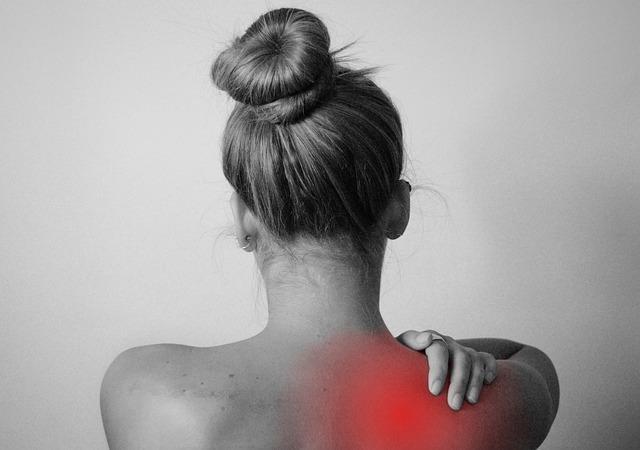 ain is part of the means to an endpoint they desire.
ain is part of the means to an endpoint they desire.
Is this true? Are the believers in “No pain, no gain” right? Like everything in life, the answer is not that simple. What is “right” and from one level of understandings does not work at another. Let’s take the boxer for example. For a young uneducated street tough, fighting is an obvious skill that will enhance his status and survivability that fit easily into his existing mindset. He might even get good enough to make some money for a while before he becomes too damaged to participate any further. From the mind set (state of consciousness) of that young person, the pain in fighting is necessary for him to survive and thrive.
Could this young person get a minimal education and then get into business or stock brokering? Yes he could. The same aggressive fighting instincts that worked to help him survive in the streets are the same instincts necessary to succeed in business. Additional skills of communication and connection would have to be added (thus raising and expanding his functional capacities). And from this raised capacity the physical pain in fighting is completely unnecessary in achieving increased status and survivability. Take  George Foreman as an example – he makes a much better living selling grilling machines than he did as a boxer, without the pain.
George Foreman as an example – he makes a much better living selling grilling machines than he did as a boxer, without the pain.
I have other patients that proudly tell me they have a high pain threshold. They can take a lot of pain so if they say they are hurting then they must really be injured. I suppose that in a “do or die” survival  situation a high pain threshold would be an advantage. But in everyday life it only means you damage yourself more – not an advantage. (Just to be clear here, damage to your body is not a good thing.) So once again “no pain” is a bad idea.
situation a high pain threshold would be an advantage. But in everyday life it only means you damage yourself more – not an advantage. (Just to be clear here, damage to your body is not a good thing.) So once again “no pain” is a bad idea.
I have a third group of patients that avoid pain at all costs. I see this a lot in older folks. If a particular movement hurts at all they will vow never to move that way again. If they feel unsteady on their feet they immediately grab a cane or walker to make sure they feel safe. Once the fear of pain reaches this level, these people deteriorate quickly. The body has a primary rule: “Use it or lose it.” When fear of pain stops you using any part of your body, that body part quickly stops functioning.
But I hate pain. What is the appropriate relationship to pain? The healthy relationship to pain involves a little of each approach. To be healthy and fit we must challenge our body regularly. Our bodies are very conservative. We tear down and recycle anything we are not using. We only keep what we need. This is true for muscles, bones, everything – even brain cells. If you put a perfectly healthy person into a bed and tell him or her to stay there for 2 weeks, they will lose 50% of their muscle tone, and no matter what you do you never get it all back. This study has actually been done on people who were then followed for 30 years. Even 30 years later the effects of 2 weeks of bed rest could still be measured. Bottom line – staying comfortable is very bad for your health.
we are not using. We only keep what we need. This is true for muscles, bones, everything – even brain cells. If you put a perfectly healthy person into a bed and tell him or her to stay there for 2 weeks, they will lose 50% of their muscle tone, and no matter what you do you never get it all back. This study has actually been done on people who were then followed for 30 years. Even 30 years later the effects of 2 weeks of bed rest could still be measured. Bottom line – staying comfortable is very bad for your health.
So you must stress your body – challenge it – to be healthy. But as all of you know, it is easy to go to far and injure yourself creating tissue damage that can also leave permanent residual problems. So overstressing your body is bad for your health.
The trick is to occasionally push your body right to its limits – right to the edge of pain – without crossing over into damage. That means you have to pay attention. Your limits change minute to minute and hour by hour. You can not follow a set of rules, a training schedule, or chase a particular goal on a daily basis. Your strength can vary as much as 50% from one day to the next. Pain is your friendly guide. You have to pay attention to that fine line between discomfort and overt pain. Occasional discomfort is good for you while overt pain is not. This is just as true for your mind and emotions as it is for your body. To stay mentally healthy you must stretch yourself to learn new things, adapt to new situations or tackle the old ones in new ways.

How often do you need to stretch yourself to your limits? For strength you need to use each of your muscles to their maximum exertion 2 or 3 times a week. Your speed muscles would like a similar schedule with several maximum bursts of speed for 30 to 60 seconds 2 or 3 times a week. Your organs of detoxification (liver, kidneys, lungs, and colon) would like a similar pattern for optimal functioning where you are not constantly dumping food to be metabolized into your system. Giving your system a 36-hour clean out time 2 or 3 times a week greatly enhances your health.
Your bones, muscles, ligaments, and tendons like to be stretched to their limit daily to break up the fibrous connective tissue that forms continually all day long. Your balance system likes daily workouts. Your brain benefits from daily workouts also – stretching beyond the constantly forming habit patterns that shrink your brain function. Your immune system needs daily experiences of positive feeling states to keep healthy, just as it needs regular challenges to keep it on its toes (positive stress).
Achieving health means participating with the regular needs of your body. Avoid overt pain, but seek the edge of pain to challenge your system to stay healthy. Seeking constant comfort will slowly kill you. Pain is your friend, my friend. I believe in health. Maybe I don’t really hate pain. I just don’t like that I fail to pay attention sometimes and get stuck there.
